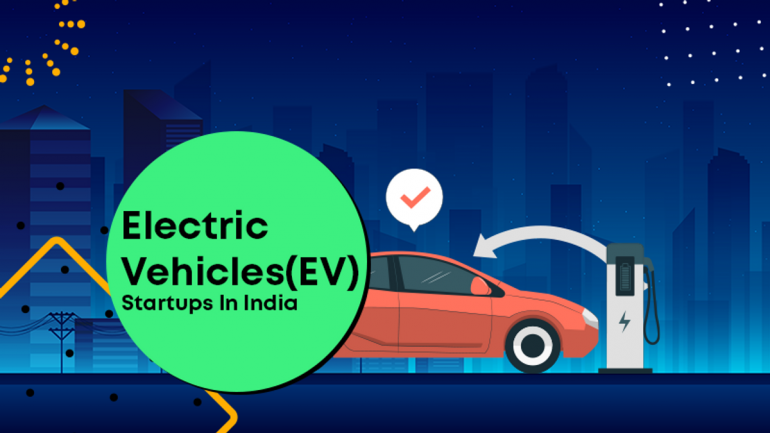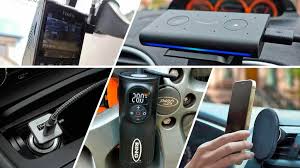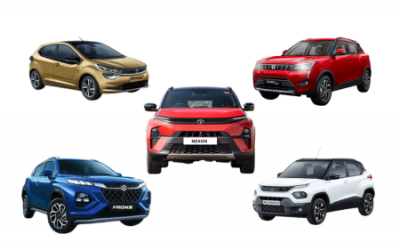The Indian automotive industry is undergoing a significant transformation, and one of the most exciting developments in recent years is the rise of Electric Vehicles (EVs). As concerns about climate change, pollution, and rising fuel prices intensify, India is increasingly turning to EVs as a sustainable and eco-friendly solution to meet its transportation needs. While major global players like Tata Motors and Mahindra & Mahindra have been leading the way, a new wave of Indian startups is making bold strides in the EV market, disrupting traditional business models and accelerating the adoption of electric mobility.
In 2022, Indian EV startups have not only focused on producing cutting-edge electric vehicles but also on building the necessary ecosystem to support their growth. In this blog, we’ll explore how Indian startups are revolutionizing the EV market and what this means for the future of transportation in the country.
1. Innovative Electric Vehicles for Every Segment
Indian EV startups are focusing on creating vehicles that cater to diverse customer needs, from affordable city cars to high-performance electric bikes and electric three-wheelers. By addressing gaps in various segments, these startups are expanding the EV market and making it more accessible to a broader audience.
Affordable EVs for the Mass Market
One of the key challenges in India’s EV market has been the high upfront cost of electric vehicles compared to conventional petrol or diesel-powered cars. Startups like Ather Energy, Batteroo, and Ola Electric have made significant strides in developing affordable EVs without compromising on performance and features.
- Ather Energy: Known for its electric scooters, Ather has focused on combining affordability with performance. The Ather 450X, for example, offers a premium EV experience at a competitive price point, with advanced features like a touchscreen dashboard, fast charging, and high speed.
- Ola Electric: Ola has shaken up the electric scooter market with its Ola S1 and S1 Pro electric scooters. With an attractive design, impressive range, and features such as keyless entry and voice control, Ola Electric has made EVs appealing to the Indian youth, positioning itself as a strong competitor to traditional two-wheeler manufacturers.
Electric Three-Wheelers and Commercial Vehicles
Another segment where Indian startups are making a mark is electric three-wheelers, which are extremely popular in India for last-mile connectivity and public transport. Euler Motors, Gayam Motor Works, and Mahindra Electric are leading the charge in developing electric three-wheelers, addressing the needs of commercial drivers and passengers.
- Euler Motors: Euler Motors has created the Euler HiLoad EV, an electric cargo three-wheeler designed for small businesses. This vehicle is well-suited for India’s growing e-commerce sector, offering an eco-friendly alternative to traditional delivery vehicles.
- Gayam Motor Works: Gayam’s e3W is an electric three-wheeler designed to provide a green alternative for city-based transportation, contributing to reducing air pollution in crowded urban areas.
Electric Buses
Indian startups are also exploring the electric bus segment, with companies like Switch Mobility (part of the Ashok Leyland group) and Olectra Greentech working on electric buses for public transport. These initiatives could significantly reduce the carbon footprint in urban areas.
- Switch Mobility: Switch Mobility has introduced electric buses aimed at reducing public transportation emissions. With cities like Bengaluru, Delhi, and Pune already adopting these vehicles, startups in this space are helping shape the future of public transport in India.
2. Revolutionizing the Charging Infrastructure
A significant barrier to the widespread adoption of EVs in India has been the lack of a robust charging infrastructure. However, Indian startups are stepping up to address this challenge by setting up charging stations and developing innovative charging solutions to make EVs more convenient to use.
- ChargeGrid: One of the notable players in this space is ChargeGrid, which is providing affordable and accessible charging infrastructure. With over 400 charging stations in various cities, ChargeGrid is making it easier for EV owners to charge their vehicles and reduce “range anxiety.”
- Tata Power EV Charging Solutions: Tata Power, a subsidiary of Tata Group, is also working to expand its network of EV charging stations across India. In collaboration with startups, they are making charging stations more accessible to consumers and businesses alike.
In addition to this, several startups are exploring solutions for fast charging technology that can reduce charging time, addressing one of the biggest concerns for EV owners.
3. Focus on Battery Technology and Innovation
A key component of electric vehicles is the battery, which is often one of the most expensive elements. Indian startups are focusing on developing more affordable, durable, and efficient battery solutions that can drive the cost of EVs down and increase their adoption.
- Ola Electric: In addition to manufacturing electric scooters, Ola Electric is also heavily invested in developing its own battery technology. The company plans to set up a massive battery manufacturing plant, aiming to reduce battery costs and ensure consistent supply for its EVs.
- PureEV: Another notable player is PureEV, which is known for its high-performance lithium-ion batteries. The company is focused on optimizing battery management systems, improving energy density, and developing sustainable battery technologies.
Startups in India are also looking at battery swapping stations, a concept where users can exchange depleted batteries for fully charged ones, providing a fast alternative to conventional charging. This could be a game-changer, especially for commercial EVs and two-wheelers.
4. Boosting Consumer Awareness and Education
One of the key hurdles in the adoption of EVs has been consumer education and awareness. Many potential buyers are unaware of the benefits of EVs, including cost savings, environmental impact, and long-term advantages. Indian EV startups are actively working to educate consumers through campaigns, test drives, and demonstrations.
- Ola Electric’s Initiatives: Ola Electric has been organizing test-drive events and awareness campaigns to introduce people to the benefits of electric mobility. The company also focuses on spreading the message through social media and digital marketing to reach the younger demographic.
- Ather Energy: Ather has been working on educating consumers about the advantages of owning an electric scooter, and it even offers exclusive “Ather Experience” centers in cities where potential buyers can learn more about EVs in a hands-on manner.
5. Government Policies and Incentives
The Indian government has been actively supporting the EV sector with various initiatives like the Faster Adoption and Manufacturing of Hybrid and Electric Vehicles (FAME) scheme, which provides subsidies for purchasing electric vehicles, and the Production-Linked Incentive (PLI) scheme for EV manufacturers. These policies have played a crucial role in fostering the growth of Indian EV startups.
The National Electric Mobility Mission Plan (NEMMP) and State EV Policies have further boosted EV adoption by offering additional benefits such as tax incentives, road tax exemptions, and rebates on charging infrastructure.
Conclusion: The Future of Electric Mobility in India
The EV revolution in India is no longer a distant dream—it is happening right now, driven by innovation, government support, and an ever-growing awareness of environmental sustainability. Indian startups are playing a crucial role in shaping the future of electric mobility, creating affordable, high-performance EVs, building charging infrastructure, and pushing the envelope on battery technology.
The growing presence of Indian startups in the EV space is also helping to create a more competitive and dynamic market, benefiting consumers with a wider range of choices and more affordable options. As we move forward, the continued evolution of electric vehicles, supported by startups, will be pivotal in helping India reduce its carbon footprint, combat air pollution, and lead the way in clean mobility.
2022 has been a landmark year for Indian EV startups, and with the momentum they’ve gained, the future of electric vehicles in India looks incredibly bright. The coming years will witness even more innovation, collaboration, and growth in the EV sector, making it an exciting time for both manufacturers and buyers alike.
0




